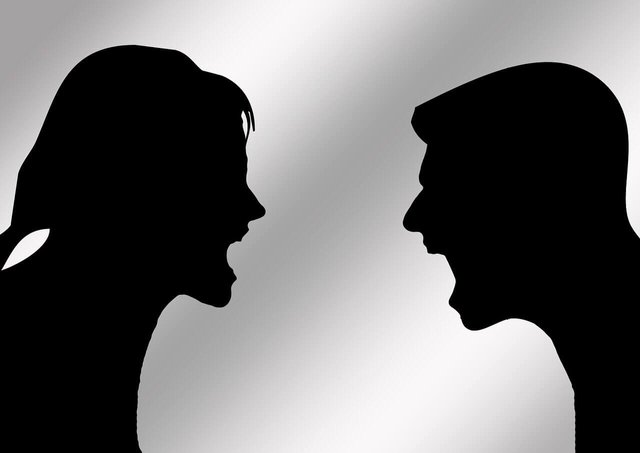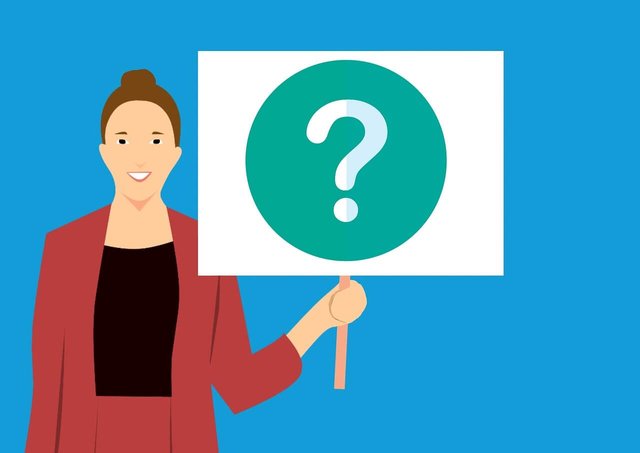How To Talk Politics Without Losing Friends

He supports the right wing. His friend supports the left wing. They have a full-blown online argument and the public enjoys watching it over a bucket of chicken wings. Both have blocked each other on social media apps and politics has sucked their friendship dry, turning them into bitter foes. Coincidentally, politics is made up of the words poli meaning "many" in Latin and tics meaning "blood sucking creatures". It's like the Latinos knew that humanity was doomed. Never has politics been this hard on friendships! For a change, it seems easier to play minesweeper and win than enter a political discussion with a friend and come out unscathed. But is winning a political argument worth losing a friend? Let's discuss how to talk politics without losing friends.
WHERE DOES THE PROBLEM LIE?
Politics, as a topic of discussion, is universal. It affects people from all strata of society - from the economically weak at the grass root level to the affluent class sitting pretty at the top of the tree. As a result, everybody has an individual opinion on how the country should be governed and what policies are useful/harmful for the society in the long run.
But the problem doesn't lie in having different opinions. The problem lies in believing that your political opinion is the gospel truth and any differing opinion is against the interests of the country. Being passionate about your opinion is okay but being insensitive to others opinions is not.

So many times I've seen political arguments among friends resulting in broken friendships. What starts off casually as a difference in ideologies suddenly escalates to a personal war with people losing their temper, judging each other's nationalism and upbringing based on the political party they support.
Today, the political climate has made us so toxic as a society that we are defining a person's character and education by his/her political inclination.
We have no qualms in eliminating people from our social circle if their political affiliation doesn't align with ours. What has led to this toxicity? Why have we become so stubborn in our political stance?
BELIEF INHERITANCE
One of the reasons why we've become so rigid in our political stance is belief inheritance. We all have an individual value system, most of which is imparted to us by our families. Interestingly, what we also inherit from our parents besides their morals, beliefs and practices are their political beliefs and preferences.

Even before we attain the legal age to vote, we're already programmed to be right-wing or left-wing. Parents are our first political messengers by default. So the political beliefs they pass on to us during our impressionable age stay with us for long.
We propagate the same political beliefs to people around us. But what we don't realise is that politics evolves with time. So a political idea of a particular political party that may have resonated with our parents in a particular era may not be relevant today.
Political parties change their agendas from time to time based on their selfish interests. A party that you feel, has supported you and your people in the past may not be working in your best interests currently.
In such a situation would you be flexible enough to acknowledge a different political opinion that challenges your existing political belief in a healthy way?
Most of the time the answer to that question is no. Instead you're throwing people with a different political opinion out of your life which does more harm than good. How?
- You're isolating yourself from a friend/critic who may have something important to teach you. You're only keeping yes men around you and therefore, there's no one left in your circle to give you a reality check.
- By discussing politics with people having different political opinions, you get a better idea of your own stance. You have more clarity with respect to what's right and what's wrong with the party you're currently supporting. This way you have an open mind that's focussed on the larger picture of the nation's betterment. Chucking people with different opinions out of your life eliminates any such possibility.
- Disregard and disrespect for people with opposing point of views creates an atmosphere of hate. You indirectly play into the hands of political parties as they successfully implement the divide and conquer strategy.
CONFIRMATION BIAS
In today's polarized political climate, a lot of people fall victim to a phenomenon called the confirmation bias. This is an occurrence in which you only tend to read or follow news sources that support your existing political belief, ignoring those that go against your political opinion.This selective political interaction happens organically based on:
- the news channels you choose to watch,
- the social media posts you choose to like and
- the people you choose to spend time with (both at home and the workplace).

This way you effectively filter out any differing opinion and self-curate your news feed in a way that you only hear voices that speak in your favour.
Confirmation bias causes an unhealthy ego boost in you, giving you the impression that your political ideology is infallible. You become a living, breathing personification of the idiom "my way or the highway".
With passions running high, many a time you don't even check the authenticity of the political propaganda that is fed to you through memes and doctored videos.
There's no room left for debate with every political discussion being just one-way traffic. You dismiss the possibility of anything productive coming out of an opposing viewpoint.
You aren't exposing your opinion to constructive criticism. So you wouldn't know if your chosen opinion has a downside to it, thereby leaving you with half-baked information.
Now imagine basing your argument on this incomplete information and cutting ties with friends who may have valid points but with an opposing viewpoint. How utterly pointless!
10 WAYS TO TALK POLITICS WITHOUT LOSING FRIENDS
In today's polarized political climate, discussing politics with friends can be a bit tricky. Here are 10 ways in which you can talk politics without losing friends :
1. REMEMBER THAT FRIENDSHIP COMES FIRST
Before getting into a political discussion with a friend, remind yourself why you're friends with them. You call them your friend because you like them for a myriad number of reasons.

Don't let a political argument ruin your friendship. Remember that elections are transient. Political candidates can betray you but a friend supports you through thick and thin.
Imagine cutting ties with a friend because you both support different political candidates, only to find out post the elections that both of them are lying pests who don't live up to their campaign promises. How foolish would you feel then?
2. FOCUS ON LEARNING AND NOT WINNING THE ARGUMENT
Try to be less competitive and more open-minded in a political argument. It's not a matter of life and death. You won't win a million dollar cheque if you prove someone wrong.

The whole point of a discussion is to learn to see things from a different perspective. If you approach an argument with a mindset to understand why your friend thinks so and not have a myopic focus on just winning the argument, then you might find that they have valid reasons for their political belief.
It only broadens your political understanding as you get to learn more about the issue at hand. And isn't a discussion more fun and interesting when both sides have valid points to support their respective opinions?
3. LISTEN TO YOUR FRIEND WITHOUT INTERRUPTING
One of the main reasons why a political discussion with a friend takes an ugly turn is because you don't listen to their opposing viewpoint and constantly interrupt them when they're talking.

You're too full of "I'm going to respond by saying this" to even realise that you haven't let your friend finish their point. Interrupting them repeatedly pisses them off and only makes matters worse as they become more aggressive in their expression.
So listen to your friend and listen well. Remember to treat people the way you want to be treated. Stay engaged with what they're saying and they'll patiently listen to your opinion too.
4. ACKNOWLEDGE THEIR VIEW AND ASK QUESTIONS
Everybody appreciates their opinion being valued in a relationship. So if your friend expresses a view which makes sense to you, then acknowledge their view by beginning your response with "I agree with what you said there" and then express your concern or disagreement.

This way your friend won't be under the impression that you're out there to bash their opinion. Also, ask your friend questions like "Can you explain why you think so?" to understand where they're coming from.
They'll feel you're listening attentively to them and not letting your ego get in the way of the discussion. In fact, they might surprise you by agreeing with you too provided you make a valid point that resonates with them.
5. DO NOT TRY TO CHANGE YOUR FRIEND'S PERSPECTIVE
When you're passionate about politics and want to desperately prove that your political opinion is the right one, then you can sometimes try too hard to change your friend's perspective. Don't do that.

Don't enter a discussion with the intent to win them over to your side. Understand the fact that if they took time to develop a certain political opinion, then they'll take time to change it too. You just make your point, provide logic and a reasonable explanation behind it and leave it there. Let your friend contemplate over it.
The best way to convince a person is to convince them that they convinced themselves. Respect their intellect enough to realize that you can't decide for them. They have a brain and a right to their own opinion. So let them gradually discover the truth themselves.
6. DO NOT ARGUE ON SOCIAL MEDIA

This is a pre-requisite to having any discussion (not just political) with a friend. Do not get into a political argument with each other on social media. Be mature enough to not make a mockery of your friendship for the sake of a few likes on your comments.
If your friend posts political content on his social media which offends you, then send him a private text message expressing your displeasure in a civil manner.
Now, he can react to your message in two ways. If he understands your point and respects it, then he'll stop posting similar stuff in the future. But if he continues to post provocative political content, then just mute/unfollow him on all social media channels. You can't get offended by the guy if you can't see his posts. Simple.
7. BE MINDFUL OF YOUR TONE AND GESTURES

In an intense political discussion, calmness and subtlety generally take a backseat. You don't realise when your tone gets loud and your gestures become aggressive. So try to maintain a calm demeanour even if your friend gets angry and loses his cool in the middle of argument.
It's very easy to get carried away in the heat of the moment and say/do things that are hurtful, just to win the battle of one-upmanship. But in the end, it only leaves you both feeling bitter and resentful towards each other. So resist the temptation to give it back and be mindful of your tone and gestures when making a point.
8. ATTEMPT A FACE TO FACE CONVERSATION IN PRIVATE

A heated political argument in public can be awkward and embarrassing. You don't want to be screaming your political views at each other and entertaining the people around you for free.
Try to have a face-to-face conversation in the confines of your own space so the communication is clear and the intent is not misunderstood.
This way, even if the argument gets a bit heated, you at least have the option to take a timeout, collect your thoughts and divert the conversation to a lighter topic till you both are in the right frame of mind to continue the political discussion.
It's better to disagree in private (if your friendship's worth it) than to wash your dirty political linen in public.
9. DO NOT GET PERSONAL
Stick to the topic of discussion and don't resort to personal attacks. Defending your opinion passionately is okay but insulting a person just because their opinion's different from yours is not okay. Don't let your ego kill your relationship.

Below the belt comments add fuel to the fire and can lead to physical altercations, only making matters worse. So avoid such comments and be respectful towards each other at all times. Speak based on facts.
Politics shouldn't be the reason why you end a rewarding human relationship. Remind yourself that there's more to your friend than just his political opinion. And it's this "more" which drove you to become friends with him in the first place.
So irrespective of who wins the argument, ensure that if you were friends at the beginning of the argument, then you remain friends at the end of it as well.
10. END THE DISCUSSION ON A RESPECTFUL NOTE
If you've come out of the conversation changing your friend's mind, then good for you! You're one in a million. But if the opposite's happened, then no shame in admitting that either.

However, if you're still at loggerheads with respect to each other's political point of views and haven't reached any clear conclusion, then just try to end the discussion on a respectful note. Understand that it's okay if you and your friend agree to disagree.
Accepting each other's difference of opinion on a topic (that's important to both of you) is a sign of maturity. It shows that you value your friendship more than winning an argument.
Ending the discussion on a respectful note ensures that you both are on speaking terms and that the possibility of further discussion on the topic remains open.
CONCLUSION
The whole point of friendship is to embrace each other's differences. Imagine how boring the world would be if everybody had the same views about everything! You'd rather have yourself cloned and stay with your cloned models at home if all you want is everybody to share the same opinion as you.

It's okay if you and your friend have different political opinions. But it's not okay if you're letting these opinions determine your friendship.
You're compromising your integrity if defending a politician means more to you than maintaining a friendship. Friendship is a mutually rewarding equation in which the exchange of different ideas enriches you.
You can't let politicians (who change their ideologies faster than a baby changes diapers) dictate your relationships. That's giving strangers you don't know more power than they deserve.
I'd like to conclude this blog with a quote by Nikita Khrushchev - "Politicians are the same all over. They promise to build bridges even when there are no rivers".
SHARE the post "How to talk politics without losing friends" with your friends, family, frenemies so that they don't end up losing friends over political differences.
Also, SUBSCRIBE to "The Wandering Vegetable" for more such Slice of Life posts.
Posted from my blog with SteemPress : https://thewanderingvegetable.com/talk-politics-without-losing-friends/